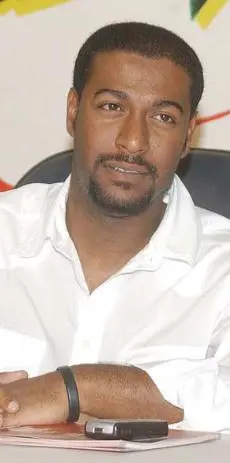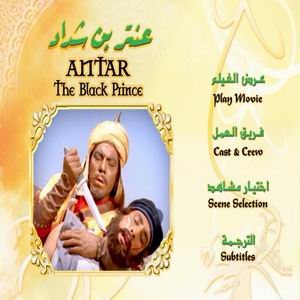I wrote the article below, “Why Black History?” to commemorate Black History Month. You can read the full article and other great articles and references at SuhaibWebb.com.
O mankind, indeed We have created you from male and female and made you peoples and tribes that you may know one another. Indeed, the most noble of you in the sight of Allah is the most righteous of you. Indeed, Allah is Knowing and Acquainted.
49:13 Quran Sahih International
Black History Month is observed in the United States, Canada, and the United Kingdom to remember important events and people of the African diaspora. In North America, we observe it in February and the United Kingdom during the month of October. In 1926, the noted African American historian, Carter G. Woodson (d. 1950), began “Negro History Week.” He selected the second week in February in order to coincide with the birthdays of Abraham Lincoln and Frederick Douglass. Woodson felt that scholars ignored his people’s history and other cultures. Much of his work was intended to foster understanding between the races. Joan Novelli writes, “Woodson believed that if whites learned of blacks’ contributions to American history and humanity, this awareness would engender respect.”[1] This reminds me of Surah 13 in Hujarat, where Allah (s.w.t.) tells us that He created us as different peoples and tribes so that we may know another. Racial equality and intercultural dialogue are moral imperatives based on Holy Scripture and Prophetic traditions. Black history month is an opportunity for us to get to know the rich legacy of Africans and their contributions to their societies, our ummah, and humanity. Importantly, Muslim Americans should commemorate Black history because it is our history.
Black history month is not about nationalism. The Quran acknowledges heritage and lineage, but it emphasizes that nobility is not inherited. The most noble are those who cultivate piety. This is the essence of Islam’s egalitarian message. Black history month is an education initiative intended to combat racism. Even during the time of our Noble Prophet (s.a.w.), anti-Black and anti-African racism was a problem. It still plagues Muslim societies and our own communities in North America. One way that we can combat racism is by educating ourselves, and others, about the contributions of various peoples to our ummah, society, and humanity in general. February is an opportunity to eradicate ignorance and combat prejudice against African and their descendants.
Black History Month is an importunity to instill self-worth in our youth. When I was in elementary school, two factors played a role in my low self worth: first, the lack of education about my people’s history and contributions to society; and second, school bullies who made fun of me and called me a slave and the “n” word. Today, in many Islamic schools, young people are still called “abeed” by their classmates. Abeed is the Arabic word for slave and it is the equivalent to calling someone the n-word.[2] When I was in elementary school, I thought that all my people were was slaves. I did do not know of the many contributions Black Americans have made to this society, whether in the sciences, business, or institutions. Although I was in the Gifted and Talented Education program, I felt like I was incapable of achieving anything. It wasn’t until middle school that I began to learn about the Civil Rights Movement and the contributions that my people made. It allowed me to imagine possibilities for myself. I could become a medical pioneer who saves lives like Charles Drew, a millionaire like Madam C.J. Walker, or a poet like Phillis Wheatley. I saw myself in those stories and I began to dream big. These stories about black scientists, inventors, explorers, doctors, and leaders can provide examples of how people triumph over adversity.
During Black History Month, I learned about Martin Luther King and, of course, Malcolm X. For many converts, regardless of race, Autobiography of Malcolm X played a role in their interest in Islam. Without Black History Month, I wouldn’t have learned about Malcolm X and it is unlikely that I would have learned much about Islam. Watching Eyes on the Prize in middle school helped me understand the Civil Rights Movement. The Civil Rights Movement help end institutional racism encoded in segregation laws. It also create opportunities for Americans of all colors. For example, an outcome of the Civil Rights Movement was the 1965 Immigration Act, which ended immigration quotas of non-Europeans.[3] This is what allowed South Asian, Middle Eastern, Arab, North African, and African Muslims to immigrate in greater numbers and establish Muslim communities. We now have one of the most diverse religious communities in the country.
Black History Month is an opportunity to learn about the history of Muslims in America. Often, Muslim Americans see themselves as recent transplants with roots only a few decades long. Many Muslim Americans are first or second generation immigrants, but Muslims have had a long presence in America. It is estimated that 10 to 15 percent of the slaves brought to the New World were Muslim.[4] While Muslim slaves were not able to pass on their religion to their descendants, the historic memory is significant. Many Black Americans look to this past as they reclaim some part of their identity ,which was erased under the brutal system of chattel slavery. Likewise, Muslims from all backgrounds can relate to the stories of Muslim who were enslaved, such as Ibrahim Abdur Rahman and Omar Ibn Said.[5] There was also Bilali, who led a community of Muslims on the Sapelo Islands during the 19th century. [6] If we look at our history in North America, we can feel more at home knowing our presence dates back hundreds of years.
Black history if also part of Islamic history. The 31st Chapter of the Quran is named after Luqman the Wise, who is said to be from Africa.[7] The first hijrah was to Abyssinia. Five times a day, we hear the call to prayer and remember the first muezzin Bilal. Islam has been in East Africa from the time of its founding and has had a presence in sub-Saharan Africa for over 1000 years. Just recently, King Mansa Musa of the Mali Empire was named richest person of all time.[8] There are also important Africans who stand out in the history of Islamic civilizations in the Middle East and Indian sub-Continent. Al-Jahiz, was a champion of Arabic and demonstrated that it is a possible to write beautiful prose in Arabic. There was also Malik Ambar who ruled the Deccan Sultanate, a rival to the Mughal Empire.[9] Many people do not know of the complex connections between East Africa, the Arabian Peninsula, and India nor are they familiar with the trade routes that connected sub-Saharan Africa to the Mediterranean. Black history can be our opportunity to explore the culture and history of Afro-Arabs , Afro-Turks, or Siddis of India. By embracing our interconnectedness, we Muslims have a rare opportunity as Muslims to participate in Black history.
Interconnectedness is the strength of our community. In the borrowing and blending, and acknowledging what we have to offer, we can understand how our lives intersect. We can take this opportunity to look for lessons in this past. We can also use this window of opportunity to begin a real process of getting to know each other’s histories and engendering a greater respect and appreciation for all peoples in our ummah.
[1] Joan Novelli “The History Behind Black History Month” Teaching Tolerance, 2007 Retrieved February 12, from 2013http://www.tolerance.org/article/history-behind-black-history-month
[2] Anyone arguing that it no longer has negative meaning, must remember that the n-word was used common place in America also. See Huckleberry Finn.
[3] Devin Love-Andrews Immigration Act of 1965 Webchron: The Web Chronology Project retrieved from internet February 12, 2013
[4] Islam in America retrieved February 12, 2013 from http://www.pbs.org/opb/historydetectives/feature/islam-in-america/
[5] John Franklin “Omar Ibn Said” Documenting the American South retrieved February 12, 2013 http://docsouth.unc.edu/nc/omarsaid/menu.html; Yusra Owais, “African Muslims: A Rich Legacy” Suhaib Webb February 26, 2011 retrieved February 12 2013 from http://www.suhaibwebb.com/personaldvlpt/character/african-muslims-in-america-a-rich-legacy/
[6] Ray Crook “Bilali-The Old Man of Sapelo Island: Between Africa and Georgia” 40-55 Wadabagei: A Journal of the Caribbean and its Diasporas Vol. 10 No. 2 Spring/Summer, 2007 retrieved from http://www.utc.edu/Faculty/Nick-Honerkamp/Bilali%20the%20Old%20Man%20of%20Sapelo%20Island,%202007.pdf
[7] Margari Aziza Hill “Luqman the Wise” August 18, 2010 retrieved February 12, 2013 from https://azizaizmargari.wordpress.com/2010/08/18/rediscovering-luqman-the-wis/
[8] Erik Oritz “King Mansa Musa Named Richest Person of All Time” The Daily News February 18, 2013 http://www.nydailynews.com/news/world/king-mansa-musa-named-richest-history-article-1.1186261
[9]A. Rangarajana “Malik Ambar: Military guru of the Marathas” The Hindu October 18, 2008 retrieved February 12, 2013 from http://www.hindu.com/mag/2008/10/12/stories/2008101250220700.htm





